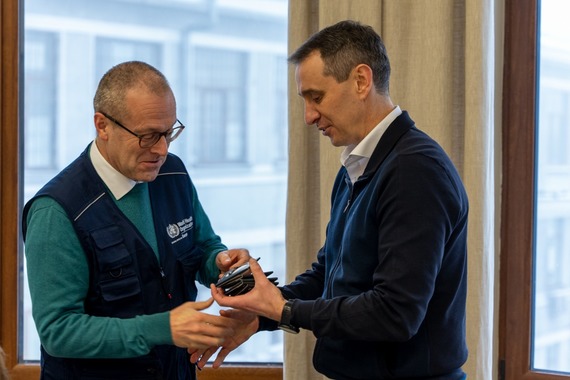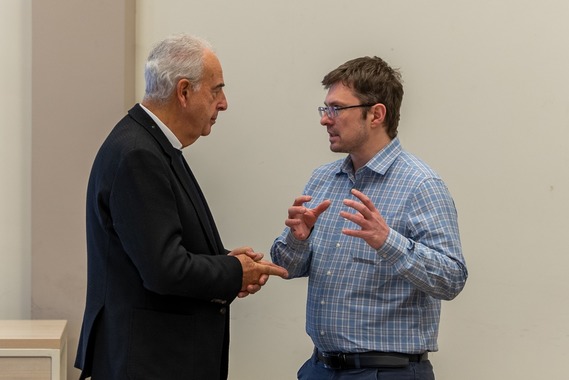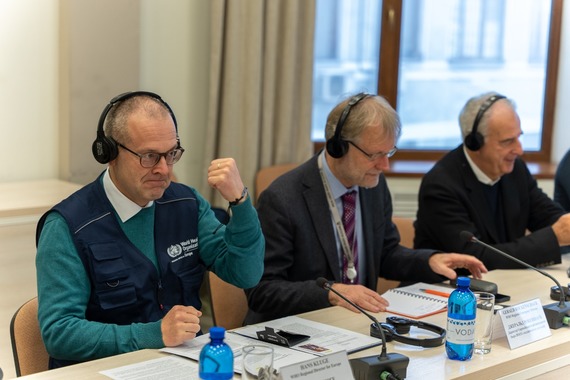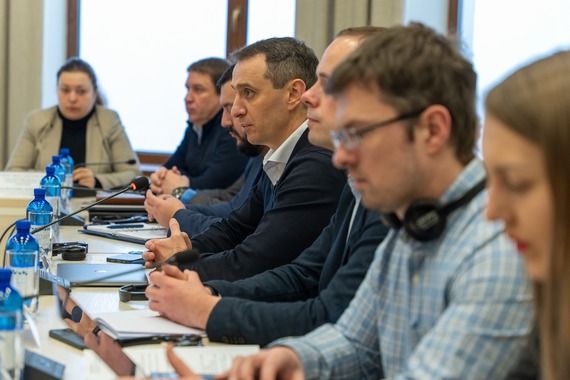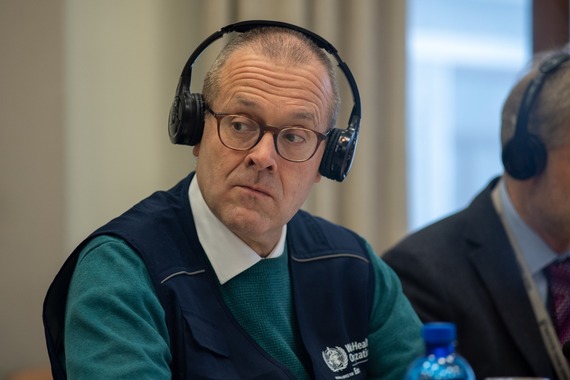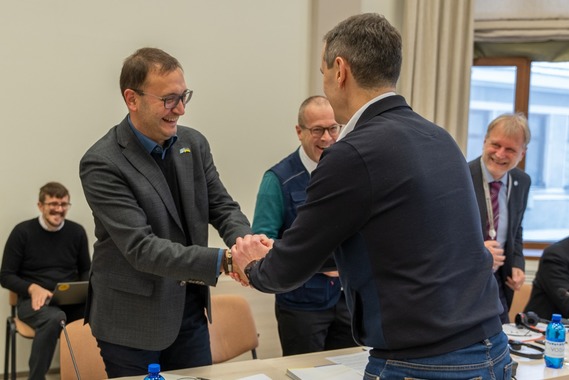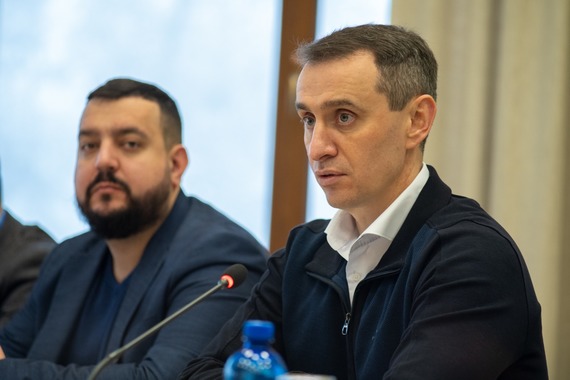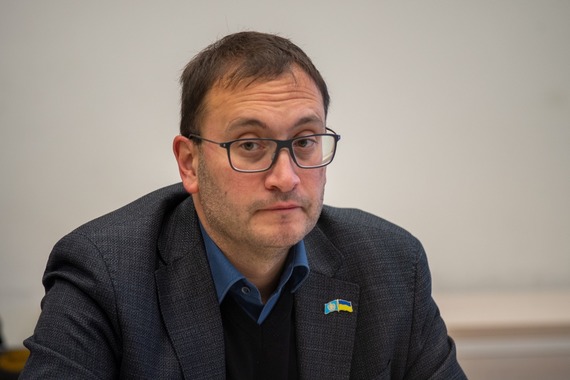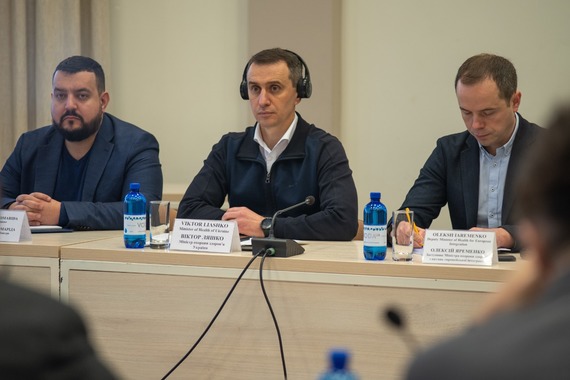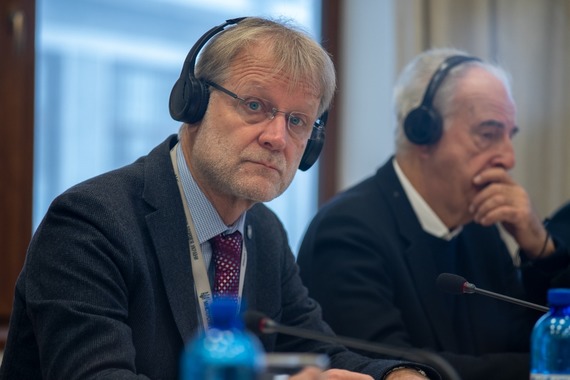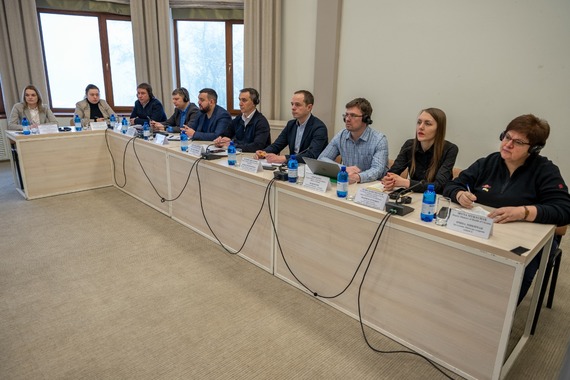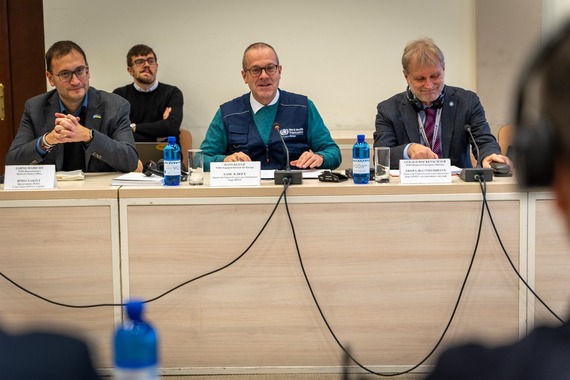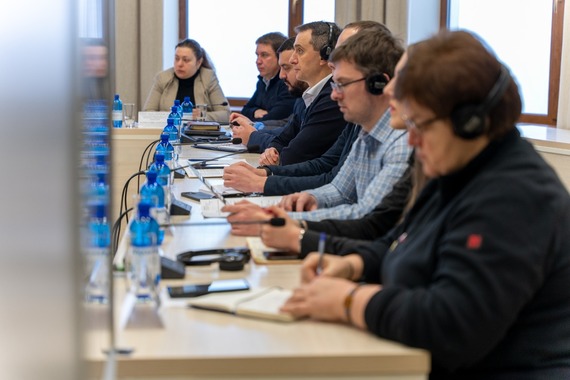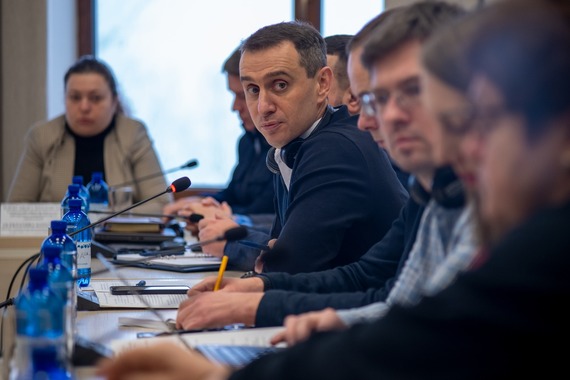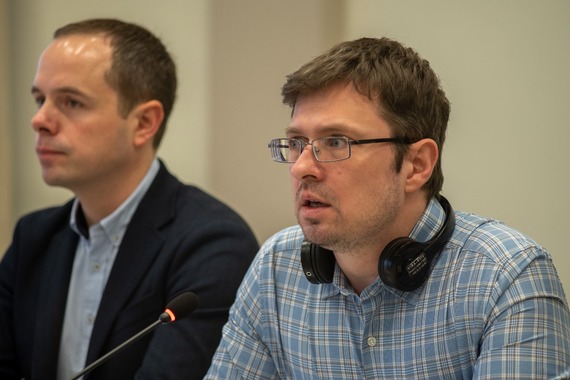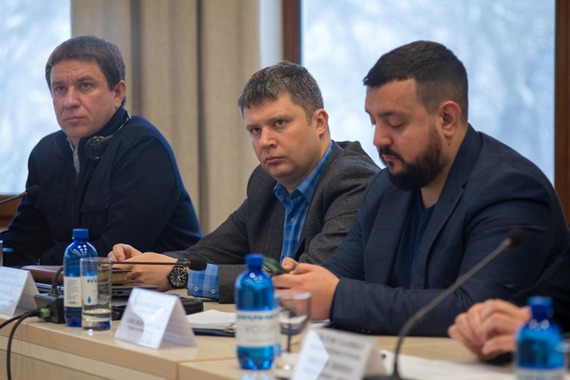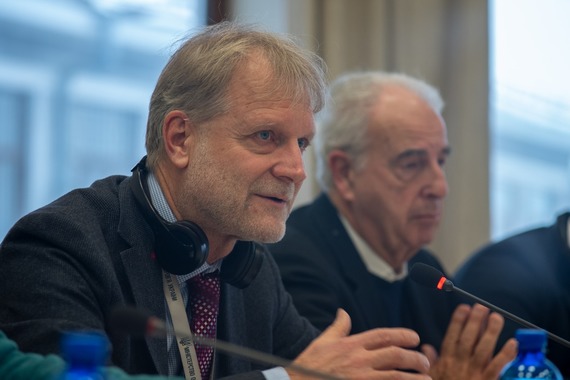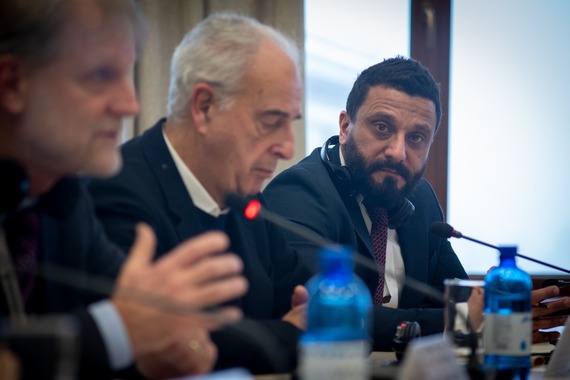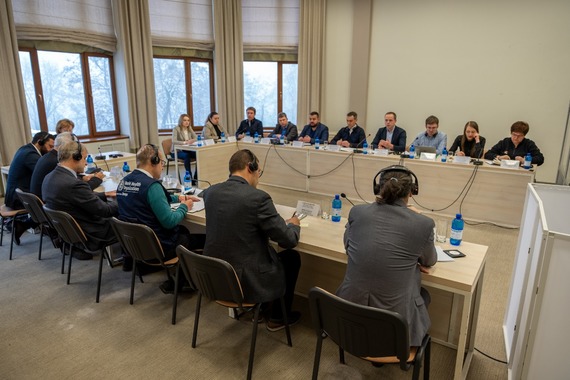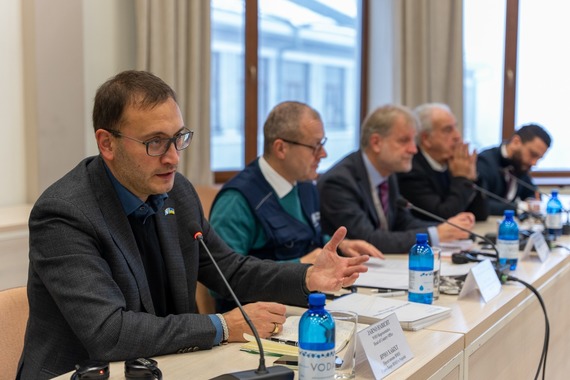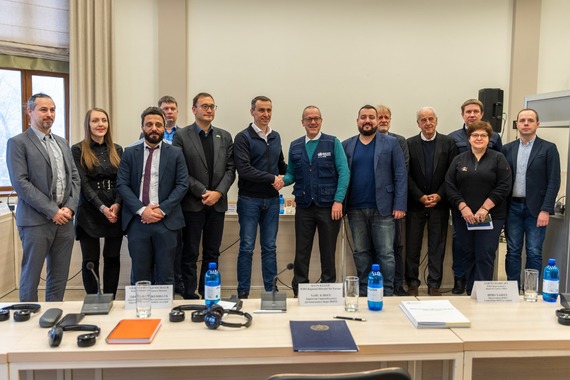News
By the end of 2024, about 10,000 family doctors will be trained under the program "Mental health services at the primary level" - Viktor Liashko
On November 21, the Minister of Health Viktor Liashko met with the WHO Regional Director of the European Region, Dr Hans Kluge.
During the meeting, the issues of meeting the needs of Ukrainian hospitals in medicines and consumables, which have increased significantly since the beginning of the full-scale war in Ukraine, were discussed; expansion of primary medical care services for patients in war-affected regions; involvement of special mobile medical teams in the Kherson region, etc.
Particular attention was paid to the possibility of WHO Europe joining the restoration of the medical system of Ukraine and continuing the provision of humanitarian aid and participation in the evacuation and rehabilitation of seriously ill and wounded Ukrainians.
Taking into account the importance of continuing to support disaster medicine teams that perform tasks in the liberated territories of Ukraine, the possibility of additional provision of emergency medical assistance vehicles, generators, and alternative sources of electricity (solar/wind generators) for EMD brigade base points, heat guns for stationary health care facilities is being considered 'I. In September, the WHO has already handed over 11 emergency medical vehicles to Ukraine.
"I am sincerely grateful to our partners for supporting the health care system during this crisis period, which was provoked by the full-scale invasion of Russia into the territory of Ukraine. Assistance from the World Health Organization in restoring the medical system in the liberated territories, the efforts of the WHO to provide medical institutions with additional alternative sources of energy supply, unique sets for conducting operative interventions for the wounded, promoting the development of the system of disaster medicine and rehabilitation became a powerful support for the entire medical system of our countries. Separately, it is worth noting our cooperation in strengthening the public health system, in particular, strengthening the capacity of the regional centers for disease control and prevention of the Ministry of Health in terms of readiness to respond to new challenges, as well as implemented measures for the prevention and fight against vaccine-controlled infections, infectious diseases, such as HIV/AIDS, viral hepatitis and tuberculosis, and active cooperation in the field of mental health.," Viktor Liashko emphasized.
The minister also noted that the Government of Ukraine adopted a resolution that provides for the introduction of a new package of services "Mental health services at the primary level of medical care". Thanks to the implementation of this package and the provision of financing under the contract of the NHSHU, the availability of such services at the primary level for all categories of citizens will increase.
Family doctors trained in a WHO-certified program will consult citizens, provide support and, if necessary, treatment at the primary level or refer to specialists and prevent the development of mental disorders.
Currently, more than 600 primary care professionals have already been trained under the WHO-certified mental health gap action program (mhGAP). It is planned that in 2023, 3,000 family doctors will undergo training. By the end of 2024, with the joint efforts of partners, about 10,000 family doctors should be trained under this program.
Dr Hans Henri P. Kluge, WHO Regional Director said: “WHO is here to stay in Ukraine. Mental health is a major priority, and we are working with the Ministry of Health to scale up mental health services and train healthcare workers to meet the population’s needs in the months and years ahead. This winter will also prove a formidable test to the health system amid ongoing attacks on infrastructure and healthcare. This is why we work across a range of programmatic areas to ensure that people in Ukraine can access vital health services today, and will have a stronger health system in the future.”
In addition, the Meeting raised the issues of promoting the WHO mission to provide quick access to prosthetics and orthotics for Ukrainians, the possibility of providing technical and expert assistance to the National Health Service of Ukraine on issues related to the development of a capable network of hospitals, continuing cooperation in the field of digitalization, in particular, regarding the development of the patient's office, electronic medical conclusions, integration of the electronic integrated disease surveillance system with the electronic health care system, verification of medicinal products (2D coding), involvement of expert consultants in the implementation of digital projects.

